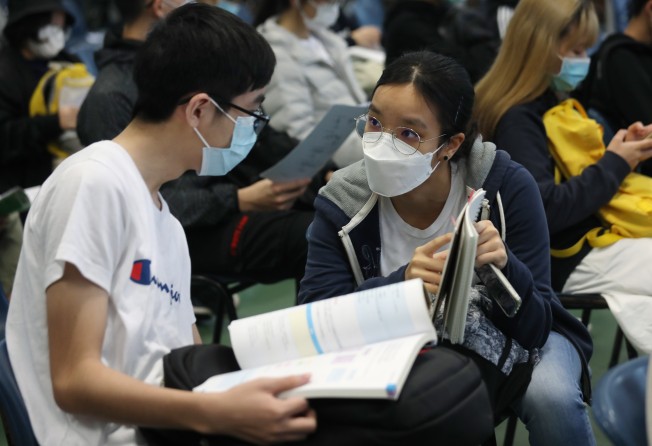Don’t make Hong Kong education pay the price for government’s incompetence

In last Tuesday’s press conference, our leader Carrie Lam Cheng Yuet-ngor again slammed Hong Kong’s education system, then wrongly quoted Nelson Mandela as saying “the collapse of education is a collapse of the nation’’.
Stoking the controversy was a Diploma of Secondary Education (DSE) history paper question, asking if Japan “did more good than harm to China” between 1900 and 1945. It provoked broadsides from the likes of Lam and Secretary for Education Kevin Yeung Yun-hung, who declared the question and sources provided biased.
Japanese militarism, which led to the Nanking massacre and a series of ruthless invasions, caused colossal and irrecoverable harm to our nation in the Sino-Japanese war. But around the 1910s, Japan was offering help to the Chinese United League (found by Sun Yat-sen in Tokyo) propping up the underground resistance movement. Without Japan’s aid, Chinese may still be ruled by the Qing empire.
The DSE question merely asked students to determine, rationally and reasonably, if Japan did more good than harm. The genuine objective of the subject is to enhance critical thinking. It is beyond an educated guess that the Hong Kong government is trying to make education carry the can for its own failure. It criticises secondary education, especially liberal studies, for radicalising hot-blooded teenagers, making them antagonistic towards the government and China.
The oppression of Hong Kong Examinations and Assessment Authority officials is a sign that total marginalisation looms over us, as our once inalienable freedoms peter out. Soon, our leader will possibly implement another round of education reform, putting the accent on nothing more than political correctness and patriotism – as even a pinprick of freedom of thought is detrimental to the country, isn’t it?
Angus San, South Horizons
Education chief fails to grasp the point of learning
Dear Carrie Lam, please can you ask for the resignation of your secretary for education, Mr Kevin Yeung, on the basis of his remarks at his May 15 press conference?
The purpose of education is to prepare our young people for life in a complex world, able to evaluate evidence and opposing arguments, and to form reasoned opinions. The purpose of a public examination is to challenge students, and give them the opportunity to demonstrate the knowledge and skills they have acquired during their studies.
A candidate that puts excessive weight on two administrative documents from the start of a 45-year period, showing no knowledge of later wars, invasions and other greater events should score very poorly on the question. Invalidating the question punishes the students able to present reasoned arguments drawing on rich background knowledge.
Mr Yeung’s remarks demonstrate his lack of understanding of the purpose of education and examinations. This makes him unsuitable to lead the Education Bureau.
Allan Dyer, Wong Chuk Hang
History question too complex and broad for coherent response
To pose an examination question as to whether a historical event or period in history is “good” or “bad” is not an academic or professional way to pose a question on the issues concerned.
Instead of asking whether a period or any event in history was “good” or “bad”, the question or proposition would be better phrased in a neutral manner, allowing examinees to think for themselves in answering.
In the case of the current discussion on the DSE examination question, for example, it would have been more open-ended to ask “What were the effects of the Japanese occupation in China during the period 1900 to 1945?” This would allow the candidate to demonstrate their grasp of the events, their understanding, their analysis as well as their argumentative and presentation skills. In any case, this is too complex and broad a period for an examination question to cover in order to receive a thoughtful and coherently argued response.
N. Fung, Repulse Bay
Help us understand what you are interested in so that we can improve SCMP and provide a better experience for you. We would like to invite you to take this five-minute survey on how you engage with SCMP and the news.